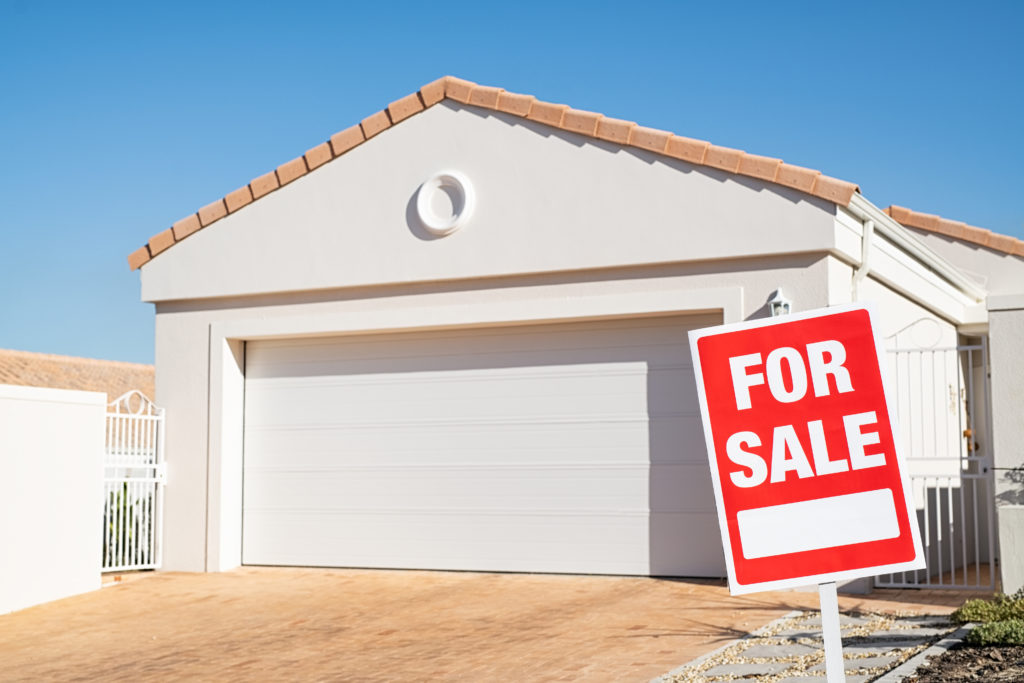Have you seen the news? Wall-to-wall headlines about the big housing market crash headed your way. You’d think it was a confirmed fact! As the CEO and founder of my own real estate brokerage, and an expert who’s been successfully working in the real estate industry for decades, I have news for you.
There will be no housing market crash.
I realize that’s a bold claim to make. But this is more than a hot take. I’m bringing facts to the table… and nine solid reasons why it’s just not going to happen.
01. Home Equity
You might be feeling stressed out about this imagined housing market crash. But you know who isn’t? The homeowners who are sitting on a massive financial cushion of trillions in equity. That’s right: trillions in equity. Can you even imagine that kind of money? That’s secure. If that isn’t enough stability for you, banks are even coming around to the idea of providing equity lines of credit for those in need. I don’t remember anything even remotely close to this in 2008.
02. Low Interest Rates
Good luck finding a fixed 30-year mortgage interest rate at below 6% today. And that’s being generous. As most of you know, this wasn’t always the case. In fact, a lot of the people who hold property today are benefitting from a 2.5% interest rate. You think they’re going to give up properties at that rate? Not a chance.
03. Comparable Rent Costs
It always shocks people when I point out that monthly rents have skyrocketed enough to give mortgages a run for their money. In a lot of cases, monthly mortgage payments are actually neck-in-neck with monthly rent for a similar property. And with the current housing inventory drought, this will likely remain true for some time. You can use JohnHart’s Rent Vs Own Calculator to see for yourself.
04. A Thriving Gig Economy

While 2008 may not seem that long ago, it was a completely different world. For one, Amazon was just a shadow of what it would become. A decade later, delivery services and ridesharing would put an emphasis on gig economy that we hadn’t seen in our lifetimes. The modern consumer, especially post-pandemic, wants everything under the sun delivered to their front doors. Thanks to this trend, it’s become easier for struggling homeowners to make ends meet. Need a little extra cash? Pick up a shift on Uber, Postmates, or any of the other countless delivery and rideshare apps. Thanks to gig economy, mortgages that may have sunk homeowners in 2008 are manageable for modern homeowners.
05. ADUs and JADUs
Along those same lines, due to the housing inventory shortage, the state of California has relaxed its restrictions on Accessory Dwelling Units (ADUs). ADUs and the smaller Junior Accessory Dwelling Units (JADUs) offer yet another means of homeowners meeting their mortgage payments. But this time, they’re living in their investment.
An ADU is a housing unit created on a pre-existing property. For example, if you decide to convert your garage into living space, it becomes an ADU. Of course, it still needs to meet state guidelines to qualify. But with the current housing shortage, it’s never been easier to establish your own ADU. And even if you’re not ready for a permanent commitment, apps like Airbnb make it easy for your home to make money pretty much by simply existing.
06. Remote Work

I’ve already shared my thoughts on remote work. But whether or not I’m a fan, it doesn’t seem to be going anywhere. For those fearing another U.S. housing market crash, this is actually a good thing. By working from home, homeowners can actually save money. Think of how much remote workers save on commute costs alone. No public transit fees. No gas. Maybe even no car! But when your home also becomes your place of business, it’s that much more crucial to hold onto it. So, not only does remote work incentivize people to keep their homes, it also makes doing so more affordable.
07. Supply and Construction Lags
California is in a desperate need for new housing. How desperate? The state needs to supply 3.5 million housing units by 2025. For the locals, think of all the construction zones you passed on the way to work this morning. Maybe one or two at most. That’s because construction continues to lag, even in the face of crisis.
Now, I’m not trying to lay this at the feet of these construction companies. But they’re still dealing with inflated material costs as a result of supply chain issues from a global pandemic and the wars that followed. There are so many factors at play, but the bottom line remains: new housing units aren’t being built at a rate that even comes close to touching the demand. And when the supply out-distances the demand by this much, a housing crash becomes even less likely.
08. Generational Wealth

According to NASDAQ, the Baby Boomer generation holds over 50% of the country’s wealth. Generation X isn’t too far behind them with 29.5%. So, where does that leave Millennials who, historically, should be shopping for their first homes? With a measly 8.5%. And it’s not like younger generations don’t want homes. The pandemic instilled an overwhelming desire for security and stability the world over.
But we’ve actually never seen the older generations cling to properties with such intensity before. But they’re not just clinging. They’re actively buying new investment properties! When you control 50% of the nation’s wealth, why not? But it’s creating a bigger problem than I can get into in this blog. The long and short of it is that everyone wants homes, and there still aren’t nearly enough to go around. This doesn’t sound like a forecast for the next great U.S. housing market crash.
09. Resilient Home Prices
I’ve saved the most important point for last. Take a look at housing prices, no matter where you live in the U.S. No real surprises, right? Housing prices have been staying the course for years. And it doesn’t really matter what we throw at them. Even with interest rates at a hefty 8%, home prices are completely unshaken. If that’s not stability, what is?

But what goes up must come down. At some point, rates are going to drop back down to 5%. And what happens then? I’m going to take an educated guess and say that home prices are going to go up.
What You Can Do Instead of Waiting for a Housing Market Crash
You can keep waiting for the next U.S. housing market crash. You might be waiting decades, but that’s your prerogative. Or, you could consult with an experienced real estate agent and use market conditions to your advantage. I’ve seen lots of people frozen in fright over the last few years. But in that same time, I’ve also seen a savvy few make some serious bank in equity by playing their cards right. Which do you want to be?
After working with, and for, many different real estate firms, it became apparent to Harout that there was a major disconnect between what consumers needed/wanted and the service that was being provided to them. It was upon this realization that Harout founded and opened JohnHart Real Estate; and as the CEO/Principal Broker he has continued to break from the norm and redefine real estate with an insatiable appetite to give his clients the service and attention they deserve.


